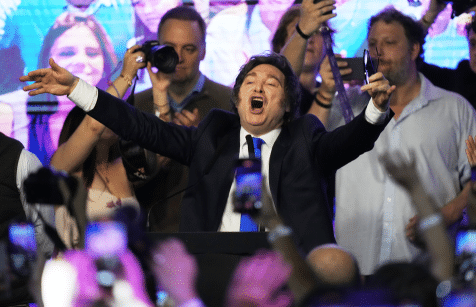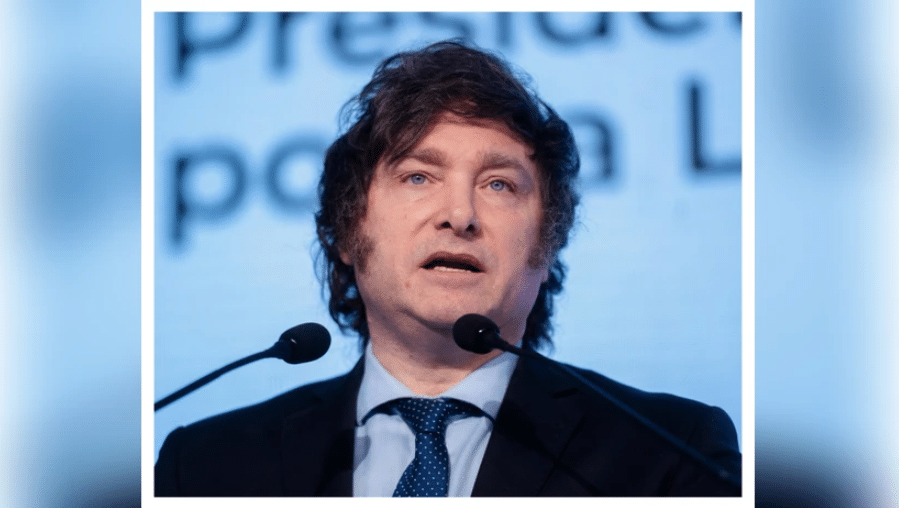
Argentina is bracing for a political reset after President Javier Milei’s chief of staff, Guillermo Francos, resigned on Friday, less than a week after Milei’s coalition secured a strengthened mandate in the midterm elections. The move signals the beginning of a new phase of Milei’s government and is expected to trigger further shifts within the Cabinet.
Francos Resigns to Clear the Way for “Next Stage” of Milei’s Leadership
Francos, 75, confirmed his resignation in a statement, explaining that he stepped aside to allow Milei to “face this new stage of government without constraints” following the national vote. His departure, widely expected after weeks of speculation, aligns with Argentina’s long-standing tradition of Cabinet changes following major elections.
Shortly after Francos’ announcement, Interior Minister Guillermo Catalán also resigned, further indicating a significant reshuffle.
Milei Appoints Spokesperson Manuel Adorni as New Chief of Staff
Riding momentum from his party’s strong midterm performance and the announcement of $40 billion in pledged support from the Trump administration, Milei named his current presidential spokesperson Manuel Adorni as the new chief of staff.
Adorni is known for his firm defense of Milei’s libertarian agenda and his direct, often confrontational style during press briefings. His appointment marks a shift toward a more outspoken, assertive leadership style inside the government’s core team.
Milei thanked Francos for his role in advancing “two years of profound reforms” and for maintaining dialogue across Argentina’s diverse political landscape.
Why Francos Was a Key Figure in Milei’s First Stage of Government
Francos initially joined Milei’s administration as interior minister and later became chief of staff to help the political outsider navigate Argentina’s complex Congress. Known as a seasoned negotiator, he played a central role in building legislative support for Milei’s economic overhaul, including austerity measures aimed at reducing the fiscal deficit and boosting foreign investment.
While some far-right supporters viewed Francos — a long-time figure in traditional politics — with skepticism, opposition lawmakers regarded him as a critical bridge to secure dialogue and negotiations.
Milei Signals “Phase Two” of Reform Agenda
Milei described the new appointment as aligned with the beginning of “Phase Two” of his government. With additional seats in Congress, his La Libertad Avanza coalition is now better positioned to block opposition spending bills that conflict with his austerity program, though it still lacks full majority control.
To push forward with his free-market transformation, Milei has acknowledged the need to build strategic alliances with centrist parties and provincial leaders.
Key Reforms Ahead: Labor, Taxes, and Investment
Among the top priorities of the government’s next phase are:
- Reforming Argentina’s labor laws
- Simplifying the tax structure
- Attracting foreign investment
- Strengthening fiscal discipline
In a strategic move to rebuild political bridges, Milei invited 20 of the country’s 24 provincial governors to a meeting at the presidential headquarters on Thursday. The four Peronist governors were notably excluded from the discussion.
Defending his decision on local television, Milei said it was difficult to engage in “reasonable dialogue” with leaders who reject basic economic principles.
“It’s impossible to sit down with people for whom two plus two doesn’t equal four,” he remarked.
What This Means for Argentina
Francos’ resignation marks a clear transition point for Milei’s administration. With Adorni taking over, the government appears set to shift from negotiation-focused politics to a more direct, assertive execution of reforms.
This next phase will test whether Milei can secure enough political support to deliver on one of the most ambitious economic revamps in modern Argentine history.





